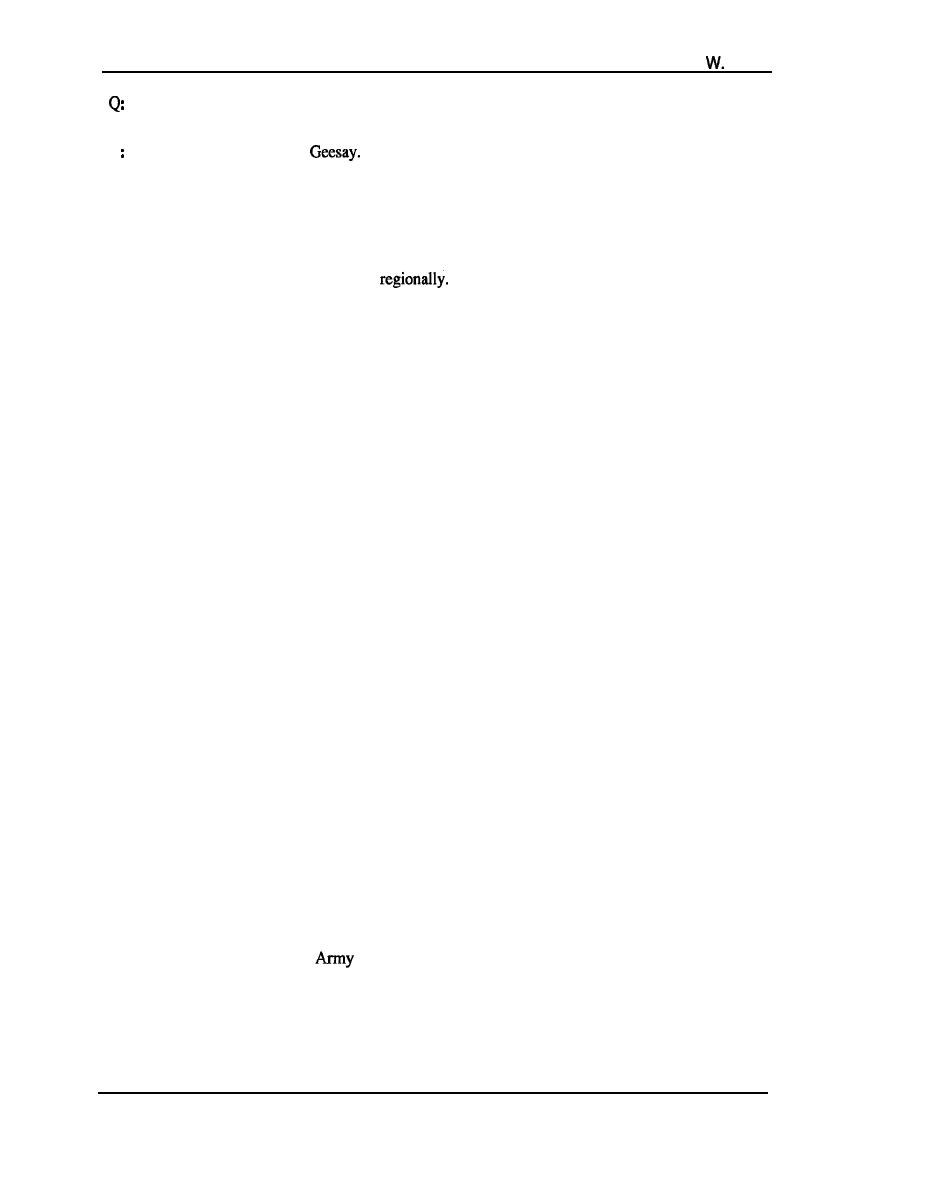
John
Morris
You established that. So there was still the old comptroller's office. We do need to talk about
that.
Comptroller was Ted
Later I changed it to the Resources Management Office. Bill
A
Taylor was running Research and Development. All these peopleI've mentioned, every one
of them would depart shortly after I became Chief. So I had almost a clean sweep of
decisions to make on personnel. Maybe they all decided once I got in, that it was time to
leave.
Once into the job, an early requirement was to communicate ith the district/division
w
engineers face-to-face. We met
At the end of 45 days I was able to put on paper the issues which I thought were causing
difficulty in implementing the goals. So by the 1st of September, things had settled down
quite well. We'd tried very hard to make the change quickly and get on with our work
because we had so much to do, and besides, the presidential elections were coming in
November.
The Chief of Staff of the Army passed from General Weyand to General Bernard Rogers, my
classmate from the Military Academy. We had known each other over the years.
As the election campaign warmed up, candidate Carter made some strong statements about
the Corps, and I began to realize that we were going to have trouble if Carter was elected. So
we began to prepare for that possibility.
Unlike earlier reorganization plans for the Executive Branch, this one would be a little
different, because the president personally had made a statement that he was going to do
something adverse to the welfare of the Corps. Under earlier reorganization schemes, the
director of Civil Works usually became the action officer and, as mentioned earlier, he was
the one that put his career on the line in case something went wrong. The idea was to insulate
the Chief.
In this particular case, there would be no alternative but for the Chief of Engineers personally
to become involved in developing a plan to stay in business.
Well, as you know, Jimmy Carter was elected. I had probably, along with a lot of other
people, misinterpreted the public's will, intent, and it was only in the last days of the
campaign that we began to realize President Carter would probably make it, or had a good
chance of making it. So we began to plan how to react should he implement his campaign
promises to put the Corps of Engineers out of business. That occupied a lot of my thinking
in the early days.
Shortly after the election, the Chief of Staff of the Army had his annual commanders
conference. The commanders sat with the Chief of Staff at the table. The staff along the back
normally didn't say anything unless they were asked to or a subject came up which was their
principal area of interest and responsibility. I was prepared to make a comment if I could get
an opening, but none came so I took the initiative and asked if I could present an issue I
considered important to the Army. General Rogers said, "Yes, go ahead."
I then mentioned to the
staff that I had a real problem because the new president of the
United States had said he was going to put the Corps of Engineers out of business-out of
the public works business. I stressed that such was not in the best interests of the Army or
the country, but the president was our commander. My plan was to convince him, by good
works, that his plan was not the best thing to do. I stressed that I could use the Army
129



 Previous Page
Previous Page
